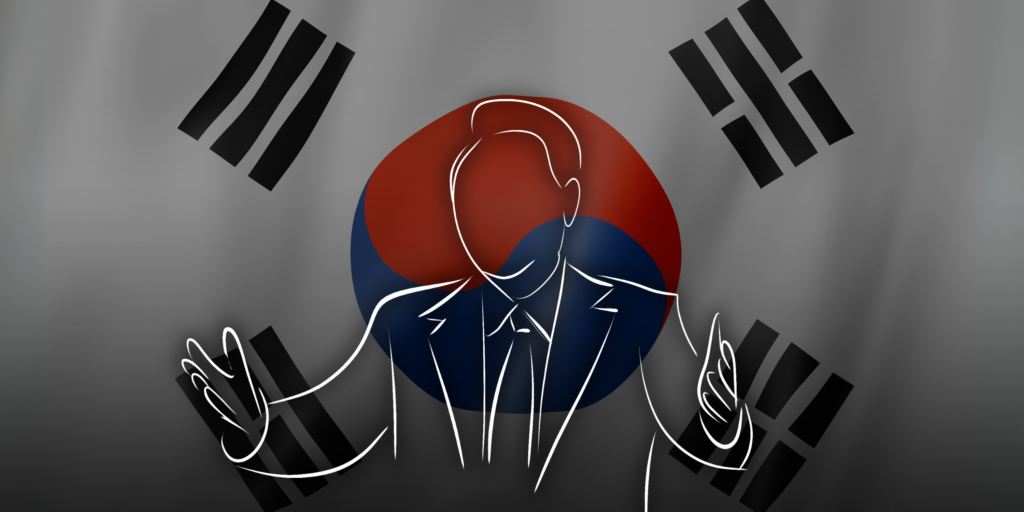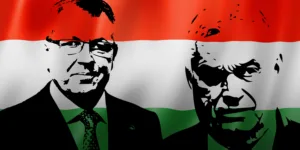South Korea is at a crossroads as the impeachment of President Yoon Seok-yeol exposes deep political fault lines, testing the strength of its institutions and raising concerns about its role as a democratic bellwether in Asia.
Key takeaways:
-
The impeachment crisis underscores the severe partisan divisions in South Korea.
-
The fragility of South Korea’s democracy has been put on full display, showing the risk of undermining the success of country’s democratization.
-
Overcoming the current crisis requires political leaders to prioritize national security, democratic principles, and to unite for the future of South Korea.
The impeachment of President Yoon Seok-yeol last December was a pivotal moment for South Korea, carrying far-reaching implications for its democracy, political stability, and international standing. While this crisis centers on the actions of one leader, its deeper significance lies in the test it presents to South Korea’s democratic resilience and its ability to unite amidst internal divisions and external threats. This period is particularly salient for those who view South Korea as a symbol of hope and freedom, especially North Korean defectors who, having fled oppression, recognize what is at stake.
The unfolding crisis: Martial law and impeachment
South Korea’s political landscape underwent significant upheaval in 2024, culminating in a constitutional crisis. The April 2024 parliamentary elections resulted in a landslide victory for the Democratic Party of Korea, the party in opposition to President Yoon. This led to political deadlock, with disputes over budget allocations and controversy surrounding First Lady Kim Keon-hee, who faced allegations of bribery and stock price manipulation. The Democratic Party of Korea took aggressive measures, impeaching prosecutors and the chair of the Board of Audit and Inspection for inadequate investigation of these scandals. Yoon’s veto of a special investigation law further intensified political polarization.
On December 3, 2024, Yoon declared martial law, citing “anti-state activities” and alleged collaboration with North Korea by opposition parties. Likely influenced by South Korea’s history of military responses to political crises, Yoon may have believed his actions were constitutionally justified. However, the move was short-lived. Within hours, the declaration of martial law was reversed, and on December 14, the National Assembly impeached Yoon on charges of rebellion and undermining peace, marking only the third presidential impeachment in the nation’s history.
Following the crisis, alarming details emerged about Yoon’s alleged plans and military collusion. Leaked documents revealed extensive preparations for mass arrests of opposition leaders, judges, and civil society figures. They also revealed that Yoon had been considering using martial law for more than a year and had strategically appointed allies to key positions. Although elected democratically, Yoon’s actions—especially the suspension of democratic processes—were widely seen as disproportionate to any immediate threat.
The ramifications of Lee Jae-myung’s acquittal: A battle for leadership and democracy
The acquittal of South Korea’s opposition leader, Lee Jae-myung, on charges of violating the Public Official Election Act in March has raised questions about a potential double standard in the nation’s judiciary, with critics arguing that political considerations may have influenced the courts’ decisions. The Seoul High Court overturned a previous conviction that had sentenced Lee to a one-year suspended prison term and which would have barred him from running for office for 10 years. It ruled that his statements during his 2022 presidential campaign were either unverifiable or constituted general opinions rather than actionable falsehoods. This decision effectively clears the way for Lee to consolidate his leadership within the Democratic Party of Korea and positions him as a top contender for the presidency, should Yoon be removed from office.
The juxtaposition between Lee’s legal victory against Yoon’s legal woes lay bare deepening political polarization in South Korea. Critics claim that Lee exploited the political turmoil to strengthen his position while evading legal accountability. Meanwhile, Yoon’s supporters have rallied in unprecedented numbers, elevating him to a symbolic figure of resistance against what they perceive as politically motivated attacks. These developments have eroded public trust in South Korea’s judiciary, with recent polls indicating that only 53 percent of Koreans express confidence in the Constitutional Court.
The fragility of democracy: A North Korean perspective
South Korea’s democracy, though young, was forged by decades of struggle for freedom, with moments like the Gwangju Uprising and the Seoul Spring defining the democratic journey. But today’s threat emerges not from military dictatorship but from within the political system. Deep partisan divides are increasingly threatening the stability of South Korea’s democracy, raising alarm bells about the future of the nation’s democratic project.
For North Korean defectors, this moment carries a particular weight. South Korea has long represented the hope of freedom, an opportunity to escape the totalitarian regime of Kim Jong-un and live in a society where individual rights and freedoms are protected. The possibility that these very freedoms may be undermined through internal political conflict is a deeply unsettling prospect. In particular, the divisive impeachment process Yoon has been subjected to mirrors the kind of political instability that defectors have fled from in North Korea, where internal strife and power struggles only serve to bolster authoritarian control.
Yoon’s administration has been an ally of defectors, working to strengthen their rights and ensure their safety. His policies, such as the establishment of North Korean Defectors’ Day in 2024 and his commitment to preventing forced repatriations, have signaled a dedication to supporting those who risked their lives to escape one of the world’s most oppressive regimes. Furthermore, the Yoon administration’s strategy of “freedom-based unification,” which aims to empower North Koreans through access to independent information, stands as a testament to South Korea’s moral leadership in the region. These efforts are now at risk, as political divisions threaten to derail the very principles upon which these policies were founded.
A divided response to impeachment
The impeachment case against Yoon has placed South Korea’s Constitutional Court at the center of the political turmoil, with demands for a prompt ruling amid growing public frustration. The court has taken longer than usual to reach a verdict, fueling speculation about internal deliberations. At least six of the court’s eight justices must vote to remove Yoon from office, a decision that would trigger a snap election within 60 days. This legal process raises divisive questions about judicial impartiality under intense public scrutiny, as rival camps seek to sway opinion through protests. While South Korea’s Constitution guarantees the right to a fair trial under Article 27, emphasizing judicial independence and protection from external pressures, the scale and intensity of the protests risk creating a prejudicial environment that could challenge these safeguards. These protests highlight deep divisions within South Korean society, reflecting contrasting modes of organization and competing visions for the nation’s future.
On the one hand, mass-mobilized protests, often orchestrated by political parties and advocacy groups, utilize structured campaigns and institutional frameworks to advocate for change. These protests consolidate a unified message and rally supporters around shared values, such as anti-authoritarianism or progressive ideals. However, this ideological focus can exacerbate social divisions by framing issues in binary terms—“pro-Yoon” versus “anti-Yoon”—potentially alienating moderate voices and complicating efforts at compromise. While these movements have historical resonance in South Korea’s pro-democracy tradition, they risk undermining democratic unity by prioritizing specific agendas over broader democratic principles.
On the other hand, grassroots or spontaneous protests are driven by voluntary citizen participation, reflecting a bottom-up approach that emphasizes participatory democracy. These movements rely on direct civic engagement, with participants often mobilizing organically out of a shared sense of civic duty or concern for democratic values. Decentralized, they bring together diverse voices to address immediate political or social crises. However, their lack of formal organization can limit their ability to sustain long-term momentum or achieve concrete policy outcomes.
The upcoming verdict in Yoon’s trial, scheduled for April 4, has heightened concerns about potential social chaos and even bloodshed as a result of clashes between these groups. The Court’s handling of the announcement, whether prioritizing the order or the reasoning behind it, will signal the level of internal consensus and the potential for dissenting opinions, further shaping public perception of the trial’s legitimacy.
A call for unity and democratic renewal
South Korea’s ongoing political crisis presents a critical moment for national reflection and recommitment to democratic principles—three key efforts are imperative:
First, political leaders must prioritize national security and liberal democracy above partisan interests. The nation’s stability and democratic foundations should be the guiding principles for all political decisions.
Second, citizens must exercise their democratic rights responsibly, making informed choices that safeguard freedom and democracy without succumbing to ideological polarization.
Finally, all sectors of society must transcend political divisions and unite for South Korea’s future, fostering a political environment that values cooperation over conflict.
The nation’s future hinges on its ability to heal divisions, restore public trust in institutions, and unite its people. While South Korea thrives as a democratic republic with free elections, freedom of speech, and economic prosperity, North Korea remains a totalitarian state with no civil liberties, severe repression, and widespread poverty. This contrast highlights the importance of safeguarding South Korea’s hard-won freedoms in a region characterized by authoritarianism and political instability.







